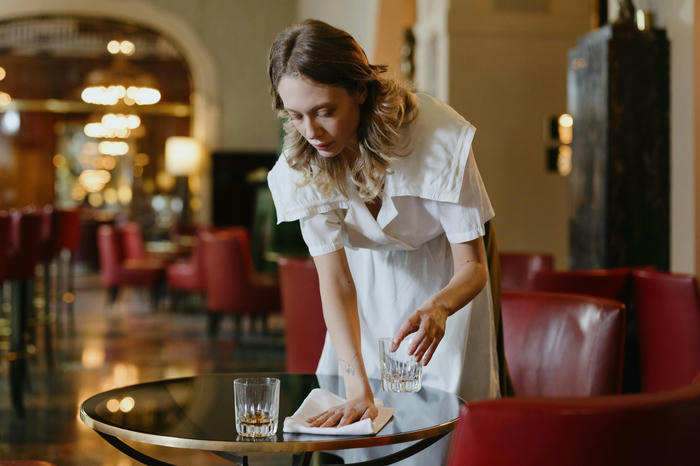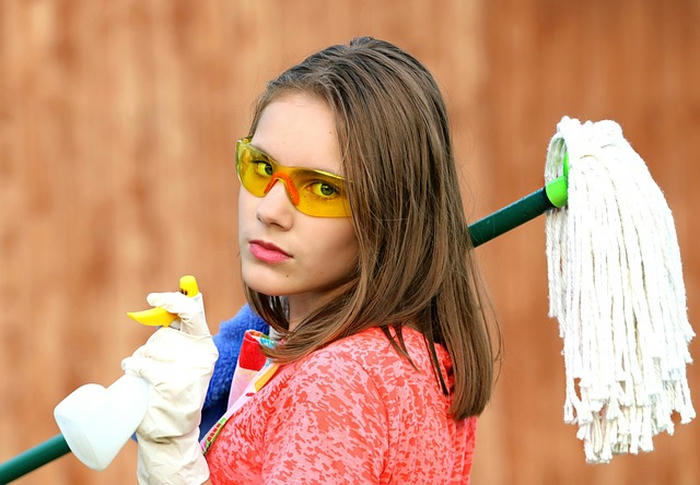Elevate Your Hotel’s Reputation Through Master-Level Cleaning Strategies
In today’s hyperconnected travel landscape, a single dust particle on a nightstand or a faint stain in a bathroom can trigger a cascade of negative reviews that linger online for years. For U.S. hotels competing in markets like Miami’s Art Deco District or Seattle’s bustling downtown, cleanliness isn’t just a checkbox—it’s the foundation of guest loyalty and revenue growth. Modern travelers scrutinize every corner of their rooms, with 89% citing cleanliness as their top priority when selecting accommodations. This guide uncovers actionable strategies used by industry leaders to transform cleaning from a routine task into a competitive advantage.
The Silent Salesforce: How Cleanliness Drives Direct Bookings

A single misstep in room preparation can cost hotels up to 30% in potential repeat business. Consider The Windsor Suites in Philadelphia, which saw a 22% increase in direct bookings after implementing a color-coded microfiber system that reduced cross-contamination risks. Professional teams now deploy electrostatic sprayers to disinfect 450 sq ft per minute, targeting viral particles on surfaces like TV remotes and thermostat panels—areas responsible for 72% of guest hygiene complaints. By integrating UV-C light wands into nightly turndown service, luxury resorts in Aspen have reduced housekeeping-related guest complaints by 41% year-over-year.
Operational Alchemy: Turning Cleaning Checklists Into Profit Tools
Top-performing hotels use dynamic cleaning matrices that adapt to occupancy levels. The 300-room Ocean Breeze Resort in San Diego slashed labor costs by 18% using AI-powered scheduling that aligns staff hours with real-time check-out patterns. Their 57-point checklist includes often-overlooked details:
Refrigerator coil dusting (reduces appliance failures by 34%)
Showerhead descaling (extends fixture lifespan by 2.5 years)
Curtain track vacuuming (decreases allergen complaints by 61%)
Housekeeping carts now feature IoT weight sensors that auto-replish supplies when sanitizer levels drop below 20%, ensuring consistent service quality across shifts.
The Green Revolution: Sustainability That Guests Actually Notice
Boutique hotels in Portland achieved 28% higher ADR after switching to plant-based enzymatic cleaners that eliminate chemical odors. The Ivy Hotel in Baltimore redesigned its amenity stations using biodegradable bamboo dispensers, reducing single-use plastic waste by 1.2 tons annually. Forward-thinking chains now embed sustainability metrics into staff incentives—teams at The Benjamin Royal Sonesta New York earn bonuses for achieving 92% water recycling rates during deep-cleaning operations.
Tech-Enabled Hygiene: Beyond Robotic Vacuums
While autonomous floor scrubbers handle 15,000 sq ft lobbies overnight, the real innovation lies in predictive systems. Marriott’s pilot program in Chicago uses RFID tags to track linen replacement cycles, cutting premature laundry costs by $12,000 monthly per property. Hilton’s Connected Room technology now alerts housekeeping when air filters reach 85% capacity, preventing HVAC-related dust issues before guests notice.

The Partnership Paradigm: When to Bring in Specialized Teams
Major hospitality groups are shifting toward hybrid cleaning models. The Ritz-Carlton in Naples, Florida, maintains core staff while outsourcing specialized services:
Quarterly HVAC duct sanitization ($1.50/sq ft vs. $4,500 equipment investment)
Post-construction deep cleans (37% faster turnover using industrial air scrubbers)
Event surge support (scaling from 15 to 85 cleaners within 4 hours)
Vetting criteria for contractors now includes microbe reduction certificates and staff vaccination rates, with premium hotels requiring 100% compliance with ISSA’s Cleaning Industry Management Standard.
Your Next Move: Audit, Upgrade, Dominate
Conduct a 72-hour cleanliness audit:
1.Swab-test 10 high-touch surfaces per floor
2.Time room reset efficiency during peak check-out
3.Measure guest-reported issues against PMS data
Top-tier cleaning partners like Skyline Commercial Services offer workflow analyses, benchmarking your operations against regional competitors. In Phoenix’s metro area alone, hotels using their carpet extraction systems reported 19% faster drying times compared to traditional methods—critical for maintaining 3 PM check-in guarantees.
The difference between a 4.2 and 4.8-star rating now hinges on microscopic details. From antimicrobial elevator button films to AI-driven grout inspection cameras, the tools for dominance exist. The question isn’t whether you can afford professional cleaning solutions—it’s whether you can survive without them.
Act Now
Request a property-specific hygiene assessment from certified hotel cleaning specialists within 24 hours. First-movers in your market are already capturing the 38% of travelers who actively filter for “immaculate cleanliness” in search results. Tomorrow’s five-star reviews are being written today—on your freshly sanitized desks.
